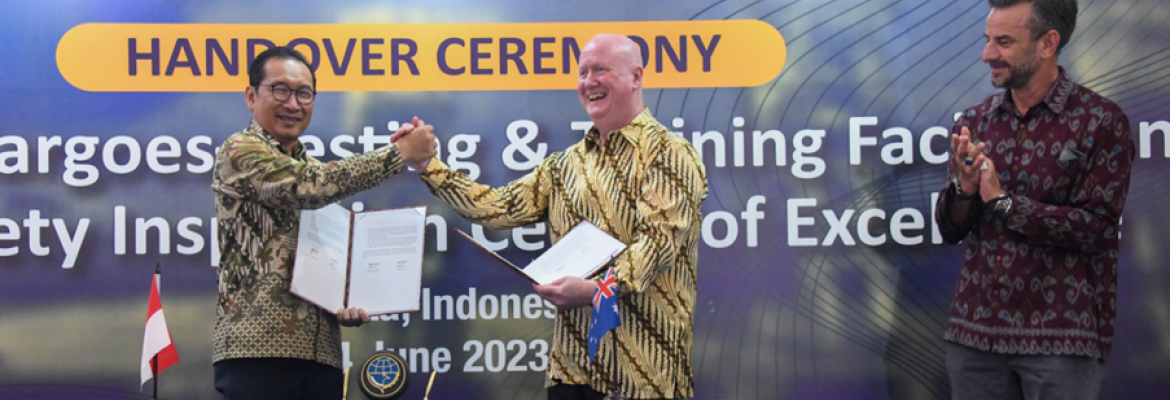
These new facilities are part of the two government's Joint Declaration on Maritime Cooperation, to foster a safer and more secure maritime environment for seafarers, vessels, and the global shipping industry.
The two facilities-a Solid Bulk Cargoes Testing and Training Facility and a Ship Safety Inspection Centre of Excellence-were handed over to the Indonesian Directorate General of Sea Transportation (DGST), which will oversee the running of the facilities.
The Solid Bulk Cargoes Testing and Training Facility will create a safer and more efficient mineral export sector by ensuring best practices in the safe carriage of solid bulk cargoes such as coal, bauxite, iron ore fines, and nickel concentrate.
Liquefaction of solid bulk cargoes can result in vessel instability and capsize-the leading cause of major fatalities during the transportation of solid bulk cargoes worldwide.
The facility will address this risk through policy, research, technical training and programs that support the International Maritime Solid Bulk Cargoes Code (IMSBC Code).
The new Ship Safety Inspection Centre of Excellence will establish an effective safety inspection regime with transparent regulations and processes, ensuring reliable enforcement of SOLAS obligations and standards for both Indonesian-flagged vessels and foreign vessels visiting Indonesian ports.
The new centre will achieve this by leveraging the collective expertise of the Indonesian Directorate General of Sea Transportation, the Australian Maritime Safety Authority (AMSA), and the international maritime community, to build the necessary workforce capability to enforce compliance with international conventions.
Learn more about AMSA's international work.